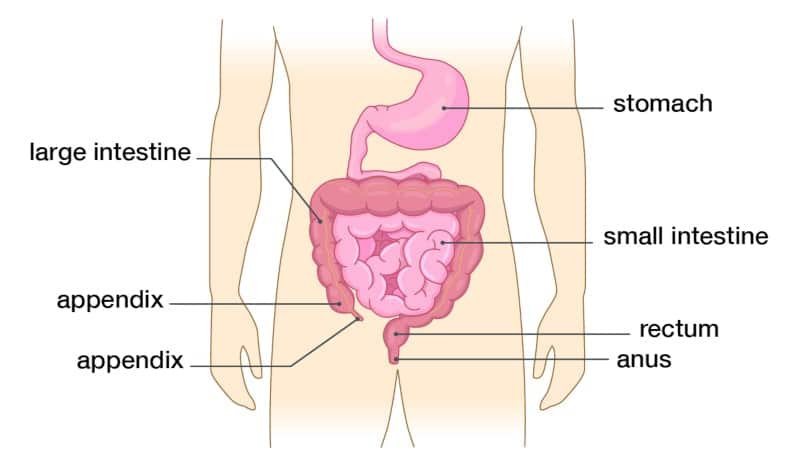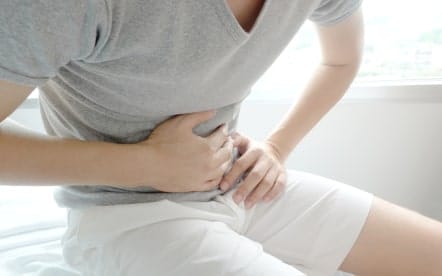Lower back pain may be caused by bowel problems
Problems of the lower back may be related to bowel problems or painful and swollen bowels. Back pain and piercing or nagging pain in the abdomen may be attributable to swollen bowels and flatulence.
For all kinds of reasons, the stomach may feel uncomfortable and cause back problems at the same time. In turn, back problems may cause abdominal pain. The nerves of both regions run lumbar (through the lower part of the spine). So, they have considerable impact on each other.
Back pain due to irritable bowel syndrome
A frequent complaint and diagnosis are colon spasms or irritable bowel, a syndrome that occurs more often in women, also during the menstrual cycle. When you suffer from abdominal pain and bloating, it is possible that you suffer from IBS or irritable bowel syndrome. One of the symptoms is a very painful lower back.
Pain in the lower abdomen and the lower back occurs in various ways. Depending on the condition, you can feel the pain in a specific part of the abdomen, for instance at the bottom. Sometimes the entire abdomen can be painful with a painful feeling in the sides and the lower back or in the lower back and the pelvis. This does not always mean it is serious. Many women have this periodically. A hot water bottle and pain killers are still the best cure. In the event of serious pain, you must contact a GP.
How do the intestines work?
The intestines are part of the digestive system and run from the abdomen to the anus. Most nutrients are absorbed in the intestines. The intestines are a few metres long. On average, the small intestine is 6 metres and the large intestine one and a half metres. Via peristaltic movements (pushing and kneading movements) the small intestines transport undigested food to the large intestines. In the large intestines, this food is processed and various rotting and fermentation processes take place. This is where bowel problems, such as flatulence or wind, often occur.

In most of the cases, the cause of bowel problems is an incorrect lifestyle, such as smoking and lack of exercise. Also, food with too much fat and too few fibres may cause diarrhoea or constipation. To prevent or reduce bowel problems, it is recommended to ensure you eat high-fibre foods (for instance brown bread, wholemeal pasta, nuts).
Fibres are parts of vegetable foods that your small intestines cannot digest or absorb. They go to the large intestines undigested. Due to a lack of fibres in food, there will be fewer indigestible material in the intestines. In the absence of sufficient bulk and the stimulating action of the food fibres, the intestines are insufficiently stimulated. This is detrimental for proper digestion of food. Moreover, too little fluid is absorbed causing hard stools and making bowel movements difficult.
The intestines are located ventrally (at the front) of the spine and can exert pressure on the vertebrae. A condition that causes pressure on the spine can cause lower backache in combination with bowel problems and problems with bladder control.
Tips to prevent or decrease bowel problems
- Make sure you eat regularly: take at least three meals spread across the day and no more than three to four snacks in-between.
- Take time to eat and chew well.
- Ensure that your food contains sufficient fibre (30 to 40 grams per day).
- Drink 1.5 to 2 litres of water per day.
- Go to the toilet on time, or even allocate a set time to go to the toilet undisturbed.
- Do not use laxatives without the permission of a doctor.
- Take sufficient and frequent exercise.
Obesity
Abdominal problems and bad digestion may also be the result of obesity. Obesity causes more infection reactions in the large intestines and a greater risk of chronic abdominal complaints. Too much weight causes more pressure on the lumbar vertebrae and the lower back muscles which can result in increased back pain. The latter is not related to the bowel problems that cause back problems but may not be ignored all the same.
Abdominal pain and back problems are therefore not always reasons for panic. Switching to a healthier lifestyle with more exercise and high-fibre food may solve the problems in many cases.


